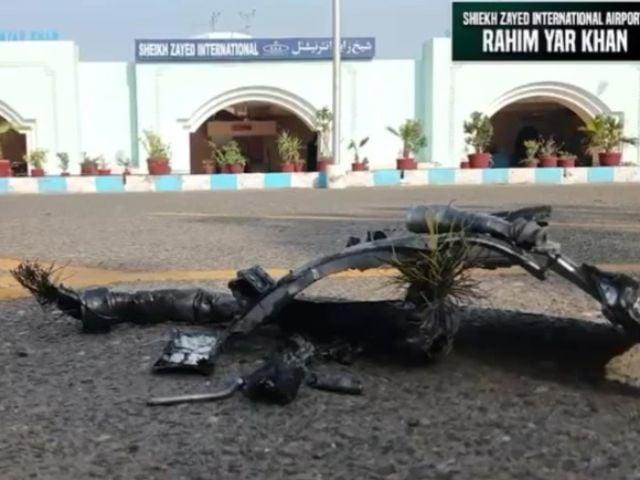India has targeted Sheikh Zayed International Airport in Rahim Yar Khan District Pakistan’s Punjab Province Facility, which is largely considered a symbol of Pakistan-Uae friendship.
According to security officials, the attack caused structural damage to the airport, built in 1993 and named after the deceased UAE president Sheikh Zayed bin Sultan Al Nahyan.
The strike has drawn immediate condemnation with observers warning that the targeting of a place associated with a close ally that UAE could have wider regional consequences.
The airport plays a key role in Pakistan’s aviation infrastructure and has diplomatic significance due to its connection with the Gulf State.
In a separate incident, Indian forces tried to target Nankana Sajib, a city that is sacred to the Sikh community and home to the birthplace of Guru Nanak.
Pakistani authorities have felt the attempt on strike as ruthless and provocative and accused India of acting out of “war hysteria.”
The attacks come in the midst of the ongoing military operations between the two nuclear armed neighbors.
Earlier today, Pakistan Operation Bunyan Al-Marsus launched a recess campaign aimed at Indian military installations believed to have been involved in targeting Pakistani civilians.
Pakistan claims that its response focuses solely on military assets and designed to prevent further civilian losses.
The government has called on the international community to note what it calls India’s repeated violations of international norms and its attempts to destabilize the region.
Tensions continue to rise, with both sides left on high alarm.
Diplomatic observers fear that the conflict could expand if not urgently peeled.
Tensions between India and Pakistan escalated sharply after the April 22 attack in Pahaldam, located in Indian illegally occupied Jammu and Kashmir (IIOJK), leaving 26 people died.
India accused Pakistan-based elements of the attack without providing evidence. Islamabad categorically rejected the accusations.
In response, India closed the Wagah Land border, recalled Pakistani Visa and announced the suspension of the Indus Waters Treaty on April 23.
Pakistan felt any disturbance of the treaty as an “act of war” and then sealed the Wagah junction on its side.
The situation deteriorated further on May 6 and 7, with explosions reported in several Pakistani cities, including Muzaffarabad, Kotli, Murideke and Bahawalpur.
Pakistan’s military spokesman, General Bill Ahmed Sharif Chaudhry, confirmed that Indian air strikes had targeted several locations.
Pakistan responded with air and soil operations during a new military campaign called Operation Bunyan-Un-Marsoos.



